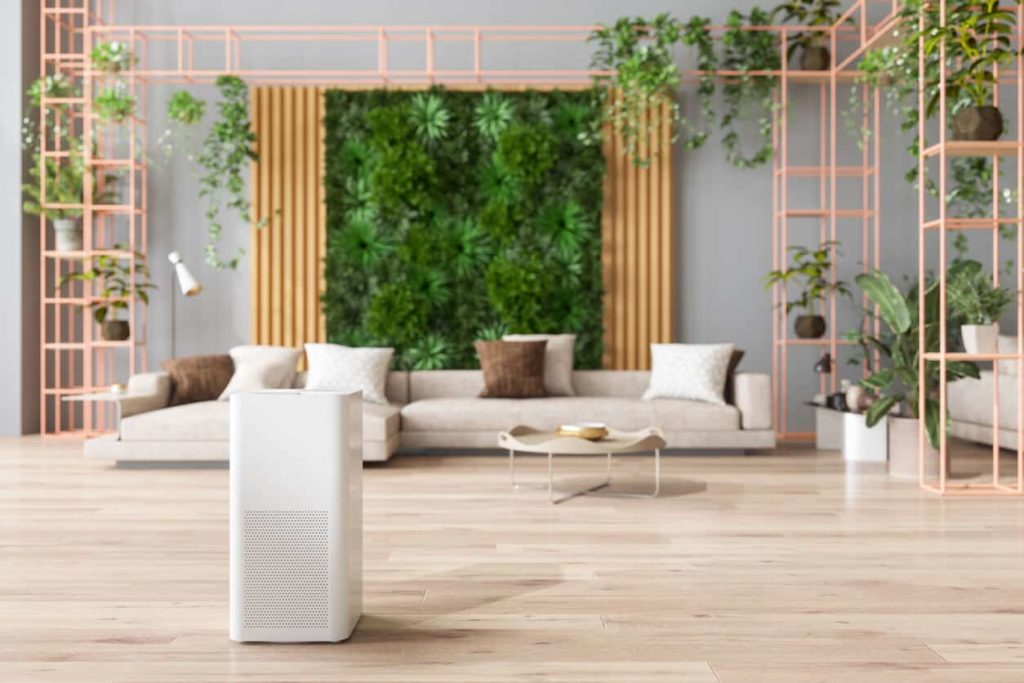We all want to breathe clean, fresh air. Think of standing on a mountain side, taking a deep breath of fresh mountain air, not polluted, hot, dirty, stale, or stuffy. This sounds perfect, right? It’s what your lungs crave. Can you do it, though? It may seem impossible if you’re inside, but it is not. It’s also not something to brush aside. Improving the indoor air quality in your home can have a number of benefits, including reducing allergens, improving respiratory health, and increasing overall comfort. Does that sound like something you’d like to bring to your own life, and the life of your family and friends inside your home? Of course!
With all of this in mind, here are a few ways to improve indoor air quality in your home:
#1 Use an air filter
First and foremost, this is the number one thing to do to improve the air quality in your home. Installing an air filter in your home’s heating, ventilation, and air conditioning (HVAC) system is an effective way to remove unwanted particles from the air, including dust, dirt, pet dander, and allergens. There are several types of air filters available, including fiberglass, pleated, activated carbon, and HEPA filters. Each type of filter has its own specific features and benefits, and the best one for your home will depend on your specific needs and preferences.

It’s important to choose the right air filter for your home and to replace it regularly to ensure that it is working effectively. Higher-quality air filters are more effective at removing particles from the air and may last longer than lower-quality filters. Consider investing in a higher-quality air filter. We encourage you to pay special attention to Carrier filters sold by FilterKing, our top choice in the industry.
#2 Use an air purifier
Allow your air filter to work more efficiently, not harder. Your air filter must be replaced when it has worked hard pulling all of the dirt and debris from the air. It makes sense that your air filter will last longer with less of the nasty stuff in the air! An air purifier is a standalone device that is designed to remove contaminants from the air. Air purifiers work by pulling in air from the room and passing it through a filter or other type of technology that captures contaminants. Using an air purifier in your home can help to remove additional contaminants from the air, which can help to reduce the workload of your HVAC system and extend the life of the air filter.
There are several types of air purifiers available, including HEPA filters, activated carbon filters, and ultraviolet (UV) light purifiers. Each type of purifier has its own specific features and benefits, and the best one for your home will depend on your specific needs and preferences.
#3 Control humidity levels
Proper humidity levels can help to improve indoor air quality by reducing the growth of mold and bacteria. A humidity level of between 30% and 50% is generally considered optimal for indoor air quality. You can use a humidifier or dehumidifier to control humidity levels in your home, depending on the current humidity level.
#4 Ventilate your home
Proper ventilation helps to remove stale, stagnant air from your home and bring in fresh, outdoor air. This can help to improve indoor air quality by reducing the concentration of pollutants in the air. You can improve ventilation in your home by opening windows and doors, using exhaust fans in the kitchen and bathroom, and installing a whole-house ventilation system.
#5 Use natural cleaning products
Many commercial cleaning products contain chemicals that can release fumes into the air, which can negatively impact indoor air quality. Using natural cleaning products, such as vinegar and baking soda, can help to improve indoor air quality by reducing the amount of chemicals in the air.

#6 Remove sources of pollution
There are many potential sources of pollution in the home, including tobacco products, candles, and certain types of paints and flooring. Removing these sources or using them in a well-ventilated area can help to improve indoor air quality.
#7 Fix any water leaks
Water leaks can lead to the growth of mold, which can contribute to poor indoor air quality. To improve your indoor air quality and prevent the growth of mold, it is important to fix any water leaks in your home. For added assurance, you may want to consider indoor air quality testing services to ensure your home is free from mold or other air pollutants.
By following these tips, you can help to improve the indoor air quality in your home and create a healthier living environment. Properly maintaining your air filter and ventilation system, controlling humidity levels, and reducing sources of pollution are all important aspects of maintaining good indoor air quality.






